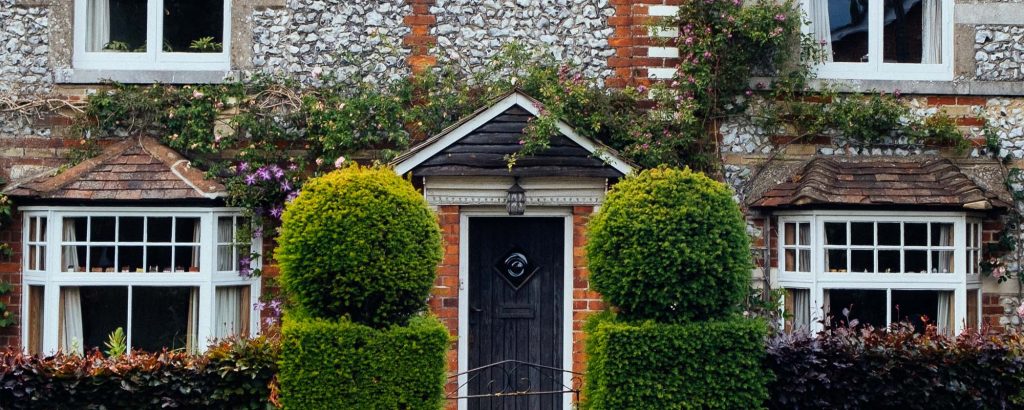
When you own a leasehold property, you may wish to buy the freehold rather than extend your lease. This gives you more control over your property as well as the amounts you pay out for maintenance costs and insurance cover. Known as ‘enfranchisement’, different rules and costs apply to buying the freehold of a house or flat, which we’ll explain below.
Buying the freehold of your house
It’s easier to buy the freehold of a house rather than a flat as you are the sole owner. Having the freehold means that you’ll own the house outright as well as the land it’s been built on. You have the right to buy the freehold once you’ve owned your property for at least 2 years. However, there’s nothing to stop you from approaching the freeholder informally about this beforehand.
When you’re ready to buy the freehold of your house in Bexleyheath, you can begin the formal process by providing the freeholder with written notice. The freeholder will then advise you as to whether or not they accept within 2 months.
As well as agreeing on a price for the freehold, you may also need to pay a deposit and some of the freeholder’s costs. These include their legal fees and a valuation fee. Should you be unable to reach an agreement about the price, you have the option to apply to a tribunal. The tribunal will then make a decision on the price as well as the terms for buying the freehold.
Buying the freehold when you own a flat
This is more complicated than buying a freehold for a house. At least half of the other leaseholders within your block of flats need to agree to buy their share of the freehold too.This means you’ll be joint owners of the building’s freehold while having individual long leases for your own flats. There are other rules to abide by:
If you have an acceptable length of lease, such as 99 years, buying the freehold won’t particularly affect your property’s value. If you have a short lease, you’ll already know that your flat’s value has been drastically reduced. You’ll also have difficulty selling your property in the future. This is because many lenders won’t approve a buyer’s mortgage unless the lease has at least 80 years left on it. When you buy your share of the freehold, you can extend the lease for your flat in Bexley and benefit from a significant increase in its value. You’ll no longer worry about issues with selling it in the future.
A ‘collective enfranchisement’
To jointly apply to buy the freehold, you need to establish a new entity. This will be used to handle the insurance, maintenance and ground rents. This is usually a company that’s set up and controlled by the flat owners. You then serve written notice to the freeholder to begin the process. As mentioned above, you can apply to a tribunal in the event that you can’t agree on a price with the freeholder.
When the process has been completed and you are joint owners of the building’s freehold, you can then each extend your own flat’s lease to a long one of 999 years via the new entity. You only pay legal fees to do this. You and the other freeholders also have full control over the decisions to be made. For example, the best insurance cover and the ground rents to be charged.
You must be given first refusal
If the situation is reversed and the freeholder wishes to sell the freehold, you and the other leaseholders must legally be given the right of first refusal to buy it. More than half of you need to accept within 2 months or the freeholder can offer it to another party.
The costs involved
The cost of buying a freehold depends on numerous factors. These include the valuation amount and the price you can negotiate with the freeholder. If you own a flat, the values of the flats, the lengths of the leases and the ground rent will be taken into account as well as the building’s valuation.
If your property has a short lease of 80 years or less, it will be more expensive to buy the freehold. This is because you have to pay 50% of your property’s marriage value. Marriage value is the extra value that’s added to your property by having the freehold.
As well as paying the freehold premium, or your share of it if you own a flat, you also need to pay other costs. These include the valuation fee, your solicitor’s fees and the freeholder’s valuation and legal costs.You’ll also be liable for stamp duty if the purchase price exceeds £125,000.
Is it worth buying the freehold?
There are many reasons why buying the freehold can be beneficial, which we’ve detailed below. Everyone’s circumstances are different so get expert guidance on whether it’s better to proceed with buying the freehold or to extend your lease. Speak with your mortgage adviser in Kent, London or Edinburgh.
A short lease detracts from your property’s value and makes it harder to sell. Buying the freehold allows you to extend your lease to a long term, which increases your property’s value. A freehold property is also more desirable for buyers than a leasehold one. If you only have about 85 years left on the lease, consider buying the freehold sooner rather than later. This is because the marriage value applies once your lease gets to 80 years.
You may feel that you’re paying extortionate amounts for the service charges and ground rent. Alternatively, you may find it difficult to deal with your freeholder and prefer to handle the management of your property yourself. If you get on well with your neighbours in a block of flats, you can work together to buy the freehold. You can then collectively deal with the maintenance, insurance and other aspects as you see fit. This includes setting your own terms as the previous ones may have been too restrictive. For example, not allowing you to have pets in your property.
You can usually remortgage to cover the costs of buying the freehold if you don’t have adequate savings. This is assuming you still meet your lender’s criteria and the lease isn’t too short. Speak with your Welling or Pimlico mortgage broker before proceeding. That way, they can check the rate and terms for you.


Pingback: pakkumised ja teenused